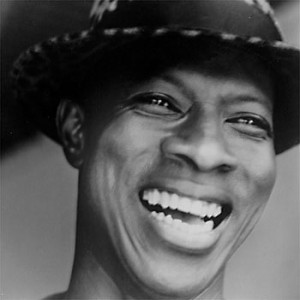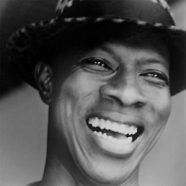A Talk With Legendary Blues Musician Keb’ Mo’ (Maui Now)
 Blues artist Kevin Moore, or Keb’ Mo’ as he’s more commonly known, is a three-time Grammy Award-winning blues musician.
Blues artist Kevin Moore, or Keb’ Mo’ as he’s more commonly known, is a three-time Grammy Award-winning blues musician.
The singer, guitarist, and songwriter is described in his JamBase biography as “a living link to the seminal Delta blues that travelled up the Mississippi River and across the expanse of America.”
We talked to the master of post-modern blues style about his upcoming shows in Hawaii, pleasing a crowd and the possible future trajectory of blues.
Maui Now: It was just your birthday: Happy birthday! Speaking of which, what would you say is the best birthday gift you’ve ever been given?
Keb’ Mo’: The best birthday gift I ever got would have to be a guitar from Vince Gill. It was a Beard Resonator.
Now that was a cool gift.
MN: It looks like the last time you were here in the islands was January 2006. Does that sound about right?
KM: That sounds about right.
MN: What brings you back?
KM: An invitation: I go where I’m invited.
Hawaii is a hard gig to do. It’s a long way away. It takes a lot of planning.
MN: Do you have any favorite memories from the last time you played Maui or the islands in general?
KM: My most favorite moment would have to be when we first got there. We had been off for two months and hadn’t played together in a while, and I was so afraid that we would be rusty. I was just stressing and stressing about it.
Then I got to Kauai and that place was so chilled out, and it just immediately had its way with me.
I just knew everything is going to be alright.
MN: Your last album was The Reflection in 2011, which was met with mixed reviews. What can fans expect to hear at next week’s shows?
KM: I don’t know.
When The Reflection came out, I was playing it all the time because I was really so proud of that record. However, people just didn’t get it.
It was a record that some people loved and others hated.
Now I love it, but I gradually started not playing the songs. When I got down to about two songs – The Whole Enchilada and We Don’t Need it – my little bubble burst.
MN: So do you plan a set list or do you actually wing it live?
KM: I plan a set list before the show, but there’s a climate that has to be considered. When a record comes out you want to focus on it, but people like to hear familiar things; not a whole lot of new things. For example, when you do a show, people love covers.
If you play something they’re not too familiar with, they’re usually not all that responsive.
It’s like this: if you play something they like, it’s really a beautiful thing.
If you have something you really like and they don’t, well…
MN: You mention that people love covers. Do you have a favorite song you like to cover?
KM: I like playing my own songs. I did covers for years: I covered, covered, covered, covered, covered.
When I do my own songs, I’m telling my own stories.
But to answer your question, I like old timey blues covers like Round Midnight.
MN: Reflecting on an old standard like that, where do you see the blues genre going?
KM: That’s a good question.
That’s a question I can’t really answer.
It’s going where it’s going.
The foundation of blues are so basic – three chords – it can go a lot of places.
The blues is an interesting genre because it was never really super popular. The blues has always been trying to figure itself out. In the end, maybe it’s just the blues; just telling a story.
MN: What do you think you would you be doing if you weren’t a musician?
KM: There’s no such thing as that. We just don’t even think about that: it doesn’t exist.
If I weren’t a musician, I’d be trying to be one!
MN: Great answer. Now, considering your 40-odd years in the business and ultimate success as a musician, what do you consider to be the best advice anyone has ever given you?
KM: My uncle Cary, the late Cary Moore, told me, “Go buy yourself a pair of $100 pants. It will change your life.”
MN: Did you buy the pants?
KM: Yes, and they shifted my thinking about myself and raised my self-esteem. That, in turn, allowed me to go forth with confidence and be who I was.






